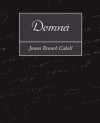Currently reading
Sin Titulo
The Old Gringo
Domnei
White Apples
Tarzan of the Apes
The Dead of Night: The Ghost Stories of Oliver Onions (Tales of Mystery & the Supernatural)
Swann's Way (In Search of Lost Time, #1)
The Land of Laughs
Voyage Along the Horizon
Palm-of-the-Hand Stories
 i wish i could say i liked this more than i did. compton-burnett's novel is very like a play. it is evident that she has a very strong command of the english language, and of dialogue, but it was not enough to carry the book, which left me cold. the bottom line, as it often is, is that i didn't like the people in this book. i didn't like horace, the patriarch/bully at the centre of the piece, i didn't like mortimer, his milque-toast cousin and would-be cuckold, or horace's wife charlotte, or their children -- so much for the family at the core of the book -- there is also a barely significant aunt emilia too. now to lamb family satellites: i didn't like bullivant the butler, or george the footman, or the cook mrs. selden, or the maid, miriam.. that's almost everybody in this book (there are the tutor and his mother, the doubledays, and a shop lady with an irrelevant secret that changes nothing on revelation) and basically everybody in the book is at least partly an asshole, and their voices are rarely distinguishable -- the children speak as the adults do, and the lower class as the upper class do -- all in compton-burnett's arch voice. i couldn't tell you that the dialogue reveals any character. the introduction to my copy, by a woman named penelope lively, lauds the characterization but i don't see it -- unless it is an archetypal characterization, or stereotype: upper-class fathers are like this, and upper-class young men who do not marry well are like that, children of the upper-class are monsters and martyrs, and lower class servants out of the workhouse must inevitably think to relieve their suffering by trying to set up fatal accidents. it gets two stars for the virtuosity of dialogue; so much as it succeeds in propelling along a plot-less story spun around a masochistic and loveless family of jerks.
i wish i could say i liked this more than i did. compton-burnett's novel is very like a play. it is evident that she has a very strong command of the english language, and of dialogue, but it was not enough to carry the book, which left me cold. the bottom line, as it often is, is that i didn't like the people in this book. i didn't like horace, the patriarch/bully at the centre of the piece, i didn't like mortimer, his milque-toast cousin and would-be cuckold, or horace's wife charlotte, or their children -- so much for the family at the core of the book -- there is also a barely significant aunt emilia too. now to lamb family satellites: i didn't like bullivant the butler, or george the footman, or the cook mrs. selden, or the maid, miriam.. that's almost everybody in this book (there are the tutor and his mother, the doubledays, and a shop lady with an irrelevant secret that changes nothing on revelation) and basically everybody in the book is at least partly an asshole, and their voices are rarely distinguishable -- the children speak as the adults do, and the lower class as the upper class do -- all in compton-burnett's arch voice. i couldn't tell you that the dialogue reveals any character. the introduction to my copy, by a woman named penelope lively, lauds the characterization but i don't see it -- unless it is an archetypal characterization, or stereotype: upper-class fathers are like this, and upper-class young men who do not marry well are like that, children of the upper-class are monsters and martyrs, and lower class servants out of the workhouse must inevitably think to relieve their suffering by trying to set up fatal accidents. it gets two stars for the virtuosity of dialogue; so much as it succeeds in propelling along a plot-less story spun around a masochistic and loveless family of jerks.













